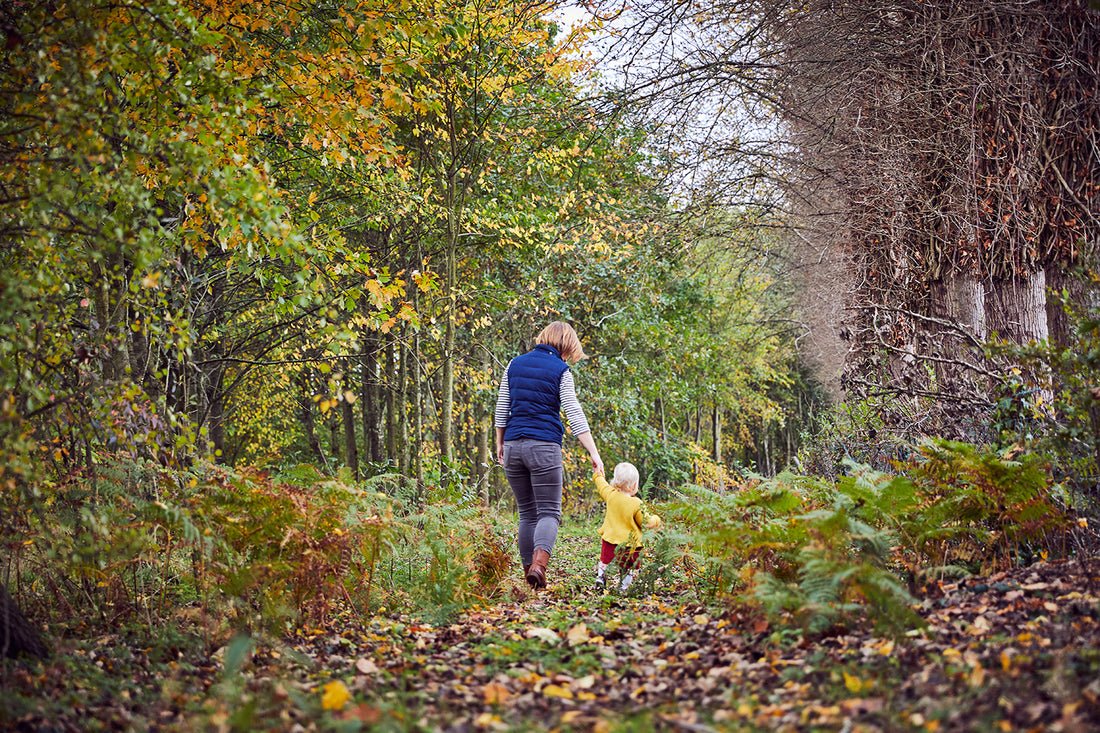
Environmental Protection Plan 2023
Share
As you know, this subject lies at the heart of our business, so much so, that one of our core values is ‘Environment and Sustainability’ – “We will do everything we possibly can to keep a focus on the needs of the environment and we will strive to achieve carbon neutrality”.
We have done a lot over the last twelve months to deliver on this promise. We have added more solar panels, we have installed a new wax storage tank to reduce our energy input, we have changed one of our old diesel forklifts for a new electric one and I now drive an electric car, and of course we continue to plant more trees.

So, when we read the government’s ‘First revision of the 25 year Environment Plan’ released yesterday, we were encouraged by its contents and we are confident that as a business we are well placed to do our bit in many of the key categories listed, and are committed to do more.
Using Resources from Nature Sustainably
Within this category, it is encouraging to see that the government has stretched its original target and is now committing to 16.5% of England to be trees and woodland by 2050. Previously it was 12% by 2050. To achieve this they are committing to plant 30,000 hectares of trees per year across the UK by the end of this Parliament.
Our experience of tree planting over the last few years has been the increased difficulty to do so, due to so much red tape and too many obstacles being placed in the way of progress. The plan states that within the England Trees Action Plan the commitment will be to “Improve the regulatory processes to make tree planting simpler, quicker and more attractive option for land managers on lower productivity land, while retaining strong environmental and biosecurity safeguards”. Let us hope this holds true!
Clean Air
It is within this category that there is the biggest focus in terms of wood burning and you will undoubtedly be aware from our previous blogs on this topic about particulate emissions from wood burning stoves.
As part of the government’s Environment Plan which was launched in 2018, hence this is the five-year review, the Clean Air Strategy was launched in 2019 and this is what led to banning the sale of smoky coal and wet wood which became law in May 2021.
Whilst there is a major focus on emissions, it is encouraging to read in the report that “between 2010 and 2020 emissions of fine particulate matter (PM2.5) decreased by 18%; emissions of nitrogen oxides (NOx) decreased by 44%; sulphur dioxide (SO2) by 70%, nonmethane volatile organic compounds (NMVOC) by 14%, and ammonia (NH3) by 0.2%. These reductions have produced significant benefits for our health and environment”.
However, the report goes on to say that “To continue to drive down emissions we will need to focus on the most polluting sectors. Data from 2020 indicates that, in the UK, emissions from the home, agriculture, industry and transport combined contributed 85% of PM2.5, 87% of NO2 and 90% of NH3 emissions to the air.”
Most importantly the report very clearly states on p81 that “We are not considering a ban on domestic burning in England. The UK government recognises that some households are reliant on solid fuel burning as a primary source for heating, hot water and cooking, with this in mind government is not seeking to ban burning. A ban on domestic outdoor burning (bonfires, barbecues, firepits etc.) would also be considered disproportionate.

It is good to see that they highlight the point we have been consistently emphasising over the last few years, in that “burning a dry log can reduce emissions by 50% compared to a log which has not been dried”.
To further reduce emissions the government sets out further plans:
- It announces that smoke emission limits for Smoke Control Areas will be cut from 5g to a maximum of 3g per hour, a measure that is welcomed by the Stove Industry Association (SIA). With the industry’s ongoing commitment to a continuous improvement this means that a large number of appliances in production (g. many ClearSkies levels 4 and 5 certified appliances) already meet this new target, and manufacturers are well placed to the challenge of ensuring that all new appliances will comply.
- It will extend the solid fuels legislation to include fuels burnt outside. This will help to provide consistency in the market making it easier for consumers to choose the right fuel, improve compliance with legislation and improve air quality. It will not, however, make any changes to traditional outdoor burning fuels such as charcoal.
- Finally, it will design and implement new measures to drive a shift away from older, more polluting stoves to new appliances which meet the touch new emissions standards.
In addition:
- Local authorities will be enabled to better enforce Smoke Control Areas – areas where additional restrictions apply on domestic burning – including through the issuing of fines under a civil regime and by pursuing persistent offenders under a criminal regime.
Finally as part of this plan, Defra have committed to continue to target communication campaigns to promote best practise in use of wood burning stoves and fireplaces in using cleaner and more efficient fuels, and techniques to reduce exposure to pollutants.
It will also publish guidance on outdoor burning best practice which will also support reducing the risk of wildfires as set in the ‘Reduced risk of harm from environmental hazards’ chapter of the plan.
So, all in all, it confirms that the Stove Industry Association is doing a great job to continue improving standards for wood burning and leading government in reducing particulate emissions and taking a sensible proportionate approach to wood burning.
It also confirms that what we are doing as a business is exactly on the right lines.
- Snell
3rd Feb 2023

1 comment
Please explain why you have a ‘wax storage tank’ and what the wax is used for.